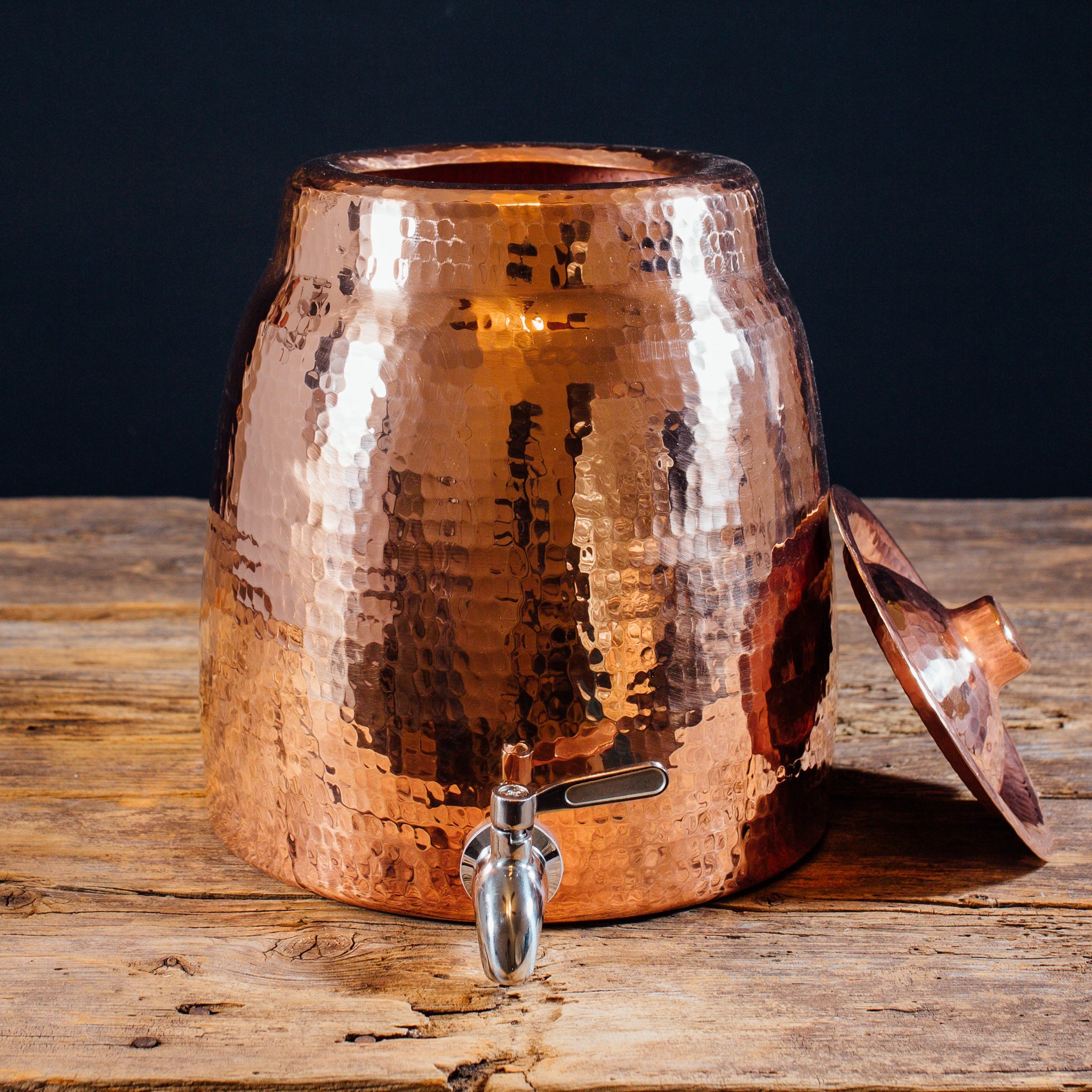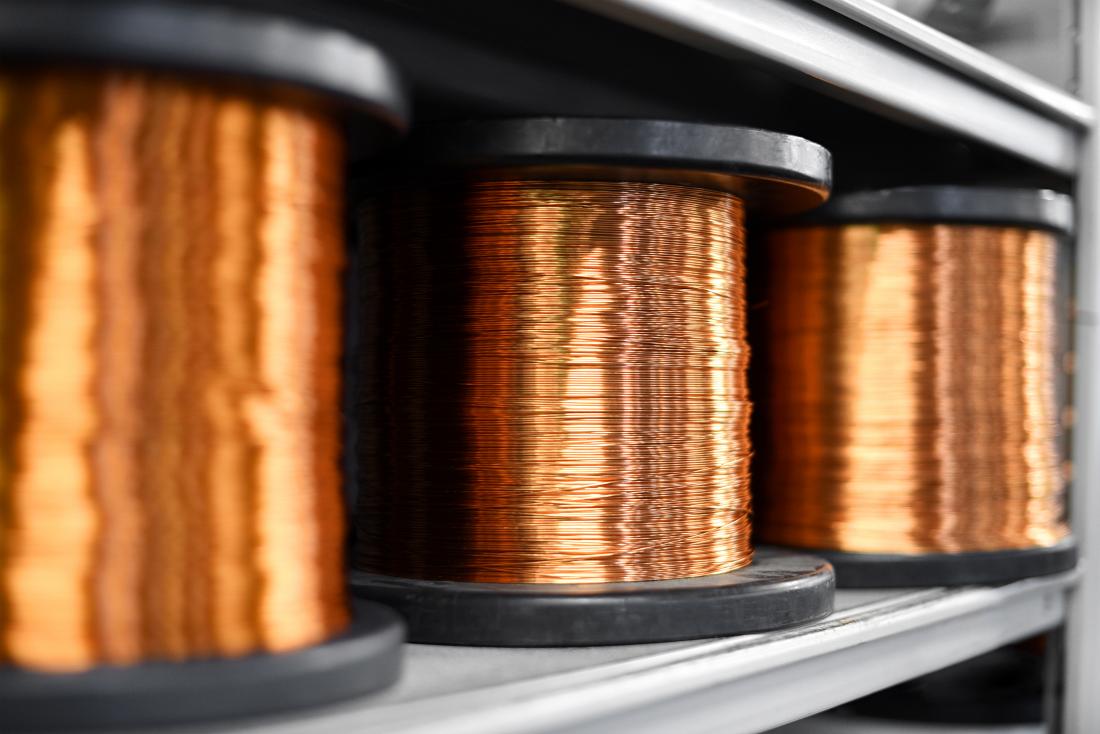Boost Your Workmanship with High-Performance Copper Products for Artisans
Boost Your Workmanship with High-Performance Copper Products for Artisans
Blog Article
Exploring the Diverse Applications of Copper Products in Modern Industries
Copper products have established themselves as indispensable parts across a myriad of contemporary markets, mainly as a result of their impressive conductivity, pliability, and resistance to corrosion. From boosting the effectiveness of electrical systems to playing a crucial role in renewable resource technologies, the convenience of copper is evident. In addition, its recyclability settings it as a lasting choice in manufacturing and electronic devices. As sectors increasingly focus on innovation and sustainability, the varied applications of copper require a closer exam, particularly regarding their possible effect on future technical advancements and environmental practices.
Electric Applications of Copper
Copper is an important product in the electric sector, making up approximately 60% of the complete need for non-ferrous steels around the world - Copper Products. Its remarkable electric conductivity, which is virtually two times that of light weight aluminum, makes it the recommended choice for a variety of electrical applications. From wiring systems in business and property buildings to high-voltage power transmission lines, copper makes sure performance and dependability in electrical energy shipment
In addition to circuitry, copper is important to the manufacturing of electrical parts such as electric motors, generators, and transformers. These elements leverage copper's thermal conductivity and pliability, vital for warmth dissipation and efficient performance. Copper's resistance to rust enhances the life-span and sturdiness of electrical systems, making it an affordable solution in the lengthy term.
The growth of renewable resource resources, such as solar and wind power, has actually even more increased the demand for copper in electrical applications. As industries transition in the direction of lasting power remedies, copper's duty ends up being a lot more vital. Generally, the adaptability and performance characteristics of copper solidify its status as a cornerstone material within the electric market, driving advancement and performance across different applications.
Pipes and Piping Solutions
In contemporary plumbing systems, the choice of products considerably impacts both functionality and longevity. Copper has actually arised as a favored choice due to its unique homes, including deterioration resistance and antimicrobial features. These qualities make sure that copper piping remains risk-free and resilient for transporting drinkable water, a vital consideration in household and industrial applications.
One of the vital advantages of copper in pipes is its ability to endure high temperatures and stress, making it suitable for a selection of applications, from warm water systems to heating and cooling down networks. Furthermore, copper's adaptability allows for simpler installment in complicated piping formats, decreasing the risk of leaks and failings.
An additional noteworthy benefit is copper's long life-span, typically exceeding half a century with proper maintenance. This long life not only lessens substitute expenses however additionally contributes to sustainable practices by reducing waste. Moreover, copper's recyclability straightens with modern environmental criteria, advertising a round economy within the plumbing market.
Copper in Renewable Resource
The convenience of copper expands beyond plumbing applications, playing a crucial duty in the renewable energy field. Its exceptional electric and thermal conductivity makes it an essential material in the production and circulation of renewable resource resources, particularly solar and wind power. In photovoltaic panels, copper is utilized in solar cells and electrical wiring, assisting in reliable energy conversion and transmission. Its resistance to deterioration makes certain durable efficiency, which is critical for maximizing power outcome gradually.

Furthermore, as the worldwide need for electrical lorries (EVs) increases, copper's role in battery systems and charging infrastructure ends up being a lot more substantial. The product's capacity to conduct electrical power efficiently is important to the efficiency of EV batteries, boosting array and billing rate.
Copper's Role in Electronic devices
Electronic devices producing depends heavily on copper's exceptional buildings, specifically its high electric conductivity and thermal effectiveness. These attributes make copper a suitable choice for a variety of electronic components, consisting of connectors, circuit card, and electrical wiring. The metal's capacity to effectively transmit electric signals makes certain very little energy loss, which is vital in high-performance electronic gadgets.
Furthermore, copper's thermal conductivity plays a substantial role in warm dissipation, protecting sensitive elements from overheating. This is specifically essential in modern-day electronic devices, where small styles lead to enhanced warm generation. Copper is likewise favored for its malleability and ductility, allowing it to be conveniently formed into intricate layouts that satisfy the demands of innovative electronic applications.
With the surge of customer electronics, telecoms, and electric lorries, the need for copper in the electronic devices industry proceeds to Visit Website expand. Thus, copper remains a cornerstone material in the ever-expanding field of electronic devices.
Cutting-edge Utilizes in Production

One remarkable application remains in additive production, where copper-based materials are employed in 3D printing processes. This enables for the creation of complex geometries and lightweight elements, particularly in the aerospace and vehicle sectors. Additionally, copper's thermal conductivity makes it an optimal option for warmth exchangers, boosting performance in industrial air conditioning systems.
Moreover, the rise of smart production has seen the unification of copper in IoT gadgets, where its conductive capabilities sustain advanced picking up modern technologies. In the realm of her response eco-friendly energy, copper is essential in the manufacturing of photovoltaic panels and wind turbines, facilitating a lot more effective power conversion and distribution.
As industries strive for sustainability and development, copper's flexibility and performance continue to position it as an important material, driving developments in production and adding to the growth of smarter, more reliable products.
Verdict
The essential role of copper in eco-friendly energy and its vital function in electronic devices highlight its significance in advancing sustainable techniques. Collectively, these applications highlight copper's critical payment to technical development and commercial performance in modern culture.
From boosting the performance of electrical systems to playing an essential function in sustainable power technologies, the adaptability of copper is apparent. As sectors significantly focus on development and sustainability, the diverse applications of copper require a closer exam, particularly regarding their potential impact on future technological developments and ecological practices.
The growth of eco-friendly power sources, such as solar and wind power, has actually even more increased the need for copper in electric applications. Generally, the flexibility and performance characteristics of copper strengthen its standing as a cornerstone material within the electric field, driving innovation and effectiveness throughout various applications.
The convenience of copper prolongs past pipes applications, playing an important duty in the eco-friendly energy field.
Report this page